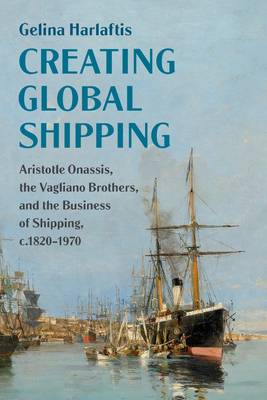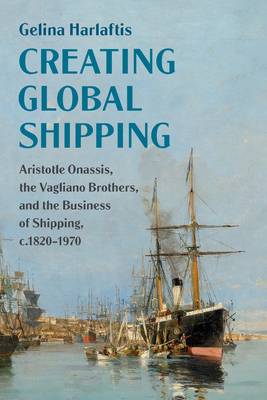
- Afhalen na 1 uur in een winkel met voorraad
- Gratis thuislevering in België vanaf € 30
- Ruim aanbod met 7 miljoen producten
- Afhalen na 1 uur in een winkel met voorraad
- Gratis thuislevering in België vanaf € 30
- Ruim aanbod met 7 miljoen producten
Zoeken
Creating Global Shipping
Aristotle Onassis, the Vagliano Brothers, and the Business of Shipping, c.1820-1970
Gelina Harlaftis
€ 43,45
+ 86 punten
Uitvoering
Omschrijving
Shipping has been the international business par excellence in many national economies, one that preceded trends in other, more highly visible sectors of international economic activity. Nevertheless, in both business or economic history, shipping has remained relatively overlooked. That gap is filled by this exploration of the evolution of European shipping through the study of two Greek shipping firms. They provide a prime example of the regional European maritime businesses that evolved to serve Europe's international trade and, eventually, the global economy. By the end of the twentieth century, Greeks owned more ships than any other nationality. The story of the Vagliano brothers traces the transformation of Greek shipping from local shipping and trading to international shipping and ship management, while the case of Aristotle Onassis reveals how international shipping was transformed into a global business.
Specificaties
Betrokkenen
- Auteur(s):
- Uitgeverij:
Inhoud
- Aantal bladzijden:
- 399
- Taal:
- Engels
- Reeks:
Eigenschappen
- Productcode (EAN):
- 9781108466783
- Verschijningsdatum:
- 3/11/2022
- Uitvoering:
- Paperback
- Formaat:
- Trade paperback (VS)
- Afmetingen:
- 152 mm x 229 mm
- Gewicht:
- 530 g

Alleen bij Standaard Boekhandel
+ 86 punten op je klantenkaart van Standaard Boekhandel
Beoordelingen
We publiceren alleen reviews die voldoen aan de voorwaarden voor reviews. Bekijk onze voorwaarden voor reviews.











